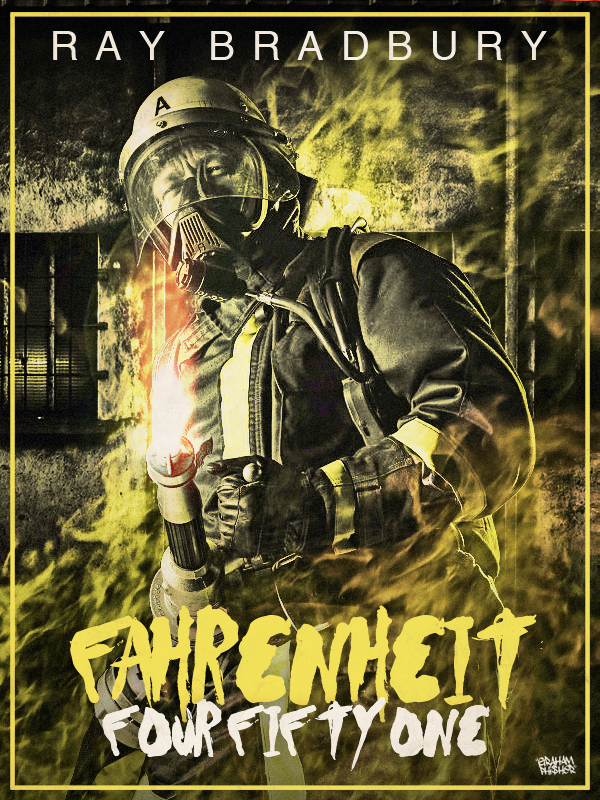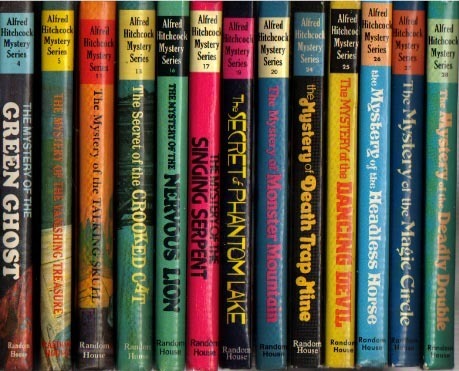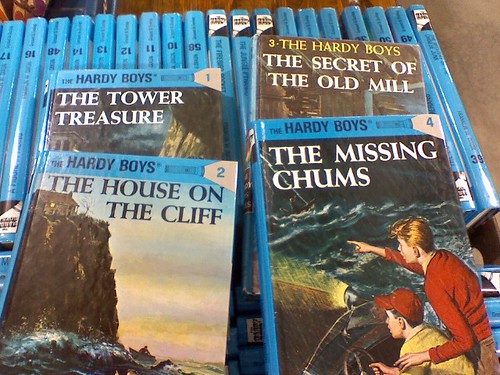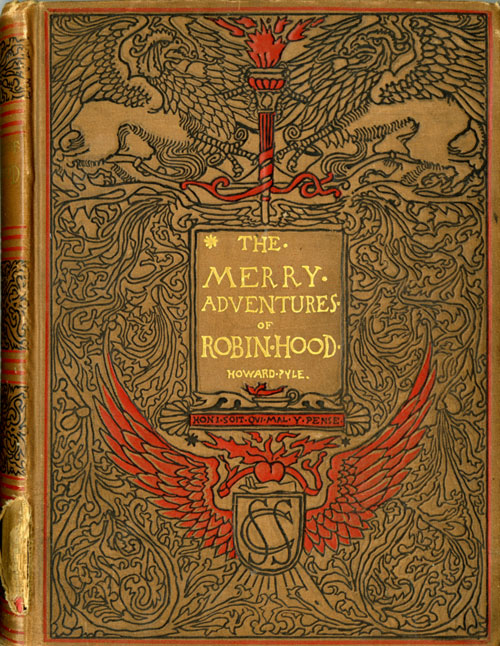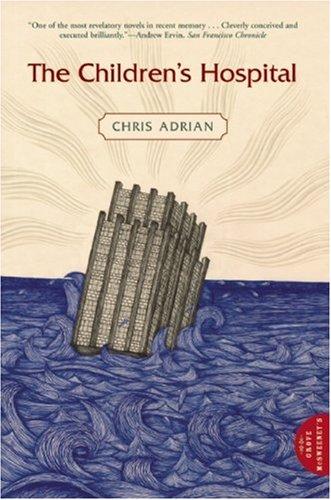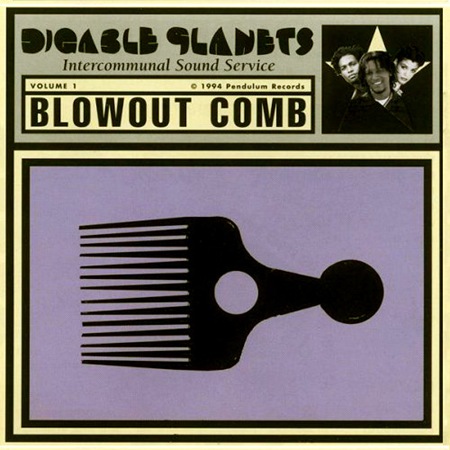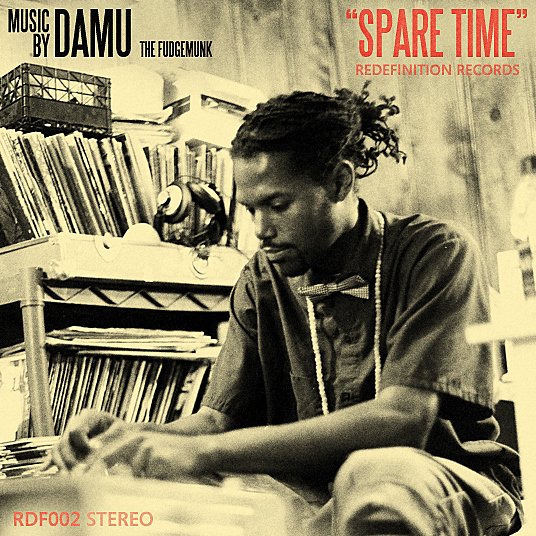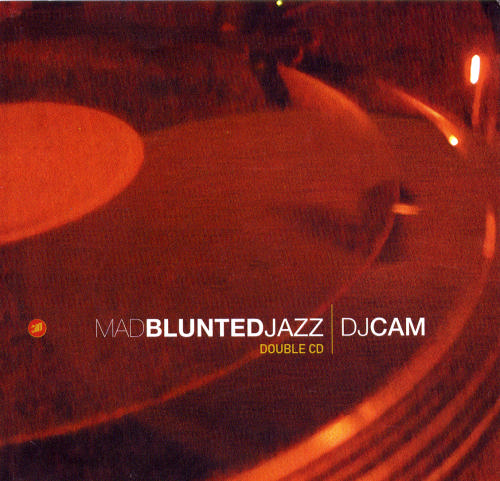It's a weird thing to think that this project is the culmination of my last two years of graduate work. I wouldn't have minded if our thesis requirements were more academic in nature (see: a dry research paper), but despite all my bitching, pissing, and moaning about this thing for the last several months, I'm actually quite proud of this piece. Before I moved to San Francisco, I don't know that I would've even come up with this kind of idea for a novel, much less the different ways of formatting all of the paintings' sections.
However, as promised, here is the final copy of my prologue to my novel-as-thesis titled "Impasto." Enjoy...and please feel free to comment/critique.
The name on his door read “Leonard Dellsin, Head Curator” and he despised rainy days second only to the icy ones like today. With advertising proofs in his hand, he turned towards the window and saw the lawn of the Chicago Metropolitan Museum of Art, a wide expanse of white nothing that seemed to glisten dangerously. The trees wore sleeves of ice on every limb, each bobbing up and down in the late afternoon breeze. How long would it take for one of the branches to finally give out, to give way under the weight of the fallen weather, before it cracked and plummeted to the ground?
A day like this used to make for a good excuse; sledding with his college mates way back when or even an afternoon in front of the fire with Marj later on in life. She had liked that. He’d spend an hour cutting limbs and branches from the tree in the backyard while she cozied up the living room with blankets and pillows and made sure hot chocolate was ready when he was done outside. He’d come in, red-faced and breathless, to the sound of Charlie Parker on the stereo. Marj would be sprawled out under blankets close to the hearth, waiting for him to return with a bundle in his arms and she’d watch patiently as he got the fire started. But the hearth hadn’t seen fire in many years and he was glad to not be at the house.
In the space of a moment, he thought about cider drinks, nogs, the crackle of wood spitting out of the fireplace, the angry red of split wood burning slow into ash, warm brandy coating the throat, a shared cigarette passed from hand to hand in the twilight hours, icicles as long as a man’s leg, ice forts and slushy streets which evolved into thoughts of stalled engines, and wet shoes from the walk through the snow-covered parking lot before realizing he would have to finish the workday in soaked socks, an uncomfortable feeling he detested.
The space heater at his feet had already dried his shoes and socks hours ago, but it felt good against his toes, warmed his body from the bottom up as he tried to focus on the text options in his hands. The whimsy of a possible snow day had been replaced with the work spread out across his desk. In six months, the pieces from the Pushkin collection would be hanging on Leonard’s walls. In five months, the second floor would be completely devoid of anything, blank walls as far as one could see from every direction as the museum’s crew replaced the current exhibits with the ones arriving. In four months, Leonard would have littered the city’s billboards and buses with posters and banners proclaiming the importance of the works on loan from Russia. As always, everything had to be close to perfection, but this new exhibit had lit a fire within him. Picasso, Matisse, Degas, a Rothko or four…it would be Christmas in June as far as he was concerned.
He took a sip of his coffee and winced. A tiny globule of powdered creamer stuck in his back teeth. The flavor was…flavorless, really, a gooey nothing taking up space in his mouth and ruining his fifth cup of the day. He tossed it into the trashcan without looking. Shelley could make another pot. It was going to be a late night anyway.
He hadn’t hired Shelley because of her experience (she had less than he would’ve liked) or because of her looks (though she was a young and terribly pretty brunette with the largest hazel eyes he’d ever seen), but because she didn’t seem to fear him. She had moxie and more than a little fight in her, but she knew when to use it and when to keep it under wraps. He didn’t want another assistant that always agreed with him. The last four had been tragically boring despite being very efficient at the job.
“Go with Georgia, go with Impact, go with Verdana,” he said, turning his chair away from the window and towards the desk. “Any of those are suitable – they’re clean, concise, and readable. This…this…this illegible rubbish of a font you’ve got here is unacceptable.” His fingers flitted across the proof in his hand as if he didn’t even want to touch it.
“Perhaps the Grumpy Wizard style of text would be more fitting,” Shelley said with a smirk. She held the empty manila folder against her chest.
Leonard looked at his assistant over the top of his glasses and kept his face blank. “Shelley, are you trying to get a rise out of me today? I get the feeling you made that one up just so you could poke the bear a little.”
“But sir, I only have a year left before you retire. I have to get my cheap jabs in now while opportunity allows.”
Leonard snorted as he compiled the proofs on his desk into one stack. “Do me a favor. Hold off until the exhibit opens, then you may have at me, yes?” he said unsmiling. He looked the ads over once more and then handed them to her. “Perhaps I’ll bite back appropriately and make it worth your time.”
Shelley slid the proofs into the folder. “Fair enough, sir. Anything else I can do for you at the moment?”
Leonard leaned back in his chair and rubbed his forehead. “No more of that powdered creamer in my coffee in the morning,” he said, waving his free hand. “It makes the coffee taste like plastic and clumps up at the bottom. Just liquid creamer from here on out.”
“And if there is no liquid creamer?”
“I’ll deal with straight black. Better to be bitter than clumpy. Tell them to go with Verdana. It’s a strong, visible font and commands the kind of respect and power this collection demands. The text needs to convey that. You’d think the people who put these together would understand the concept of words linked to images.”
“Yes, sir. Is that all?”
“No. Tonight, you leave when I leave and it’s going to be a late one.”
He had known she was busy tonight. Shelley made a point of letting him know yesterday so this wouldn’t happen. She kept her voice even in the hopes it would sound reasonable without being whiny. “But sir, I had dinner plans this evening.”
“Then we’ll order in. That’s all.” Leonard leaned forward in his chair as Shelley nodded and turned to leave without another word. When the door shut behind her, Leonard pulled out a thick, leather-bound photograph album filled with glossy pictures of the works arriving in a few short months. He ran his fingers across the glossy plastic covers keeping the pictures protected and in place, turned each page slowly and then lost himself in the images for the next hour. Yes, this collection would be an important one to have housed in his museum. Just touching the pictures here caused his heart rate to spike in the most delicious of ways.
* * *
Shelley Morris, a young blonde two years out of her graduate internship at the Nelson-Atkins in Kansas City, left Leonard’s office and decided to take the short way down the employee stairwell. Normally, she’d take her time and walk across the museum’s main floor to the public stairwell, but she wanted to get back upstairs quickly. Could she get through writing all the notes in time to leave here at a decent hour? She knew dinner was out of the question now, but maybe she’d get out in time to meet up with Andrew for drinks.
At some point, she’d have to call him and cancel dinner. Again. It was bad enough she had to ask Andrew out in the first place since he didn’t have the balls to make the first move, but getting a third date had taken an absurd amount of phone tag coupled with apologies he had probably tired of hearing by now. “You should let me talk to your boss,” he’d said in a half-threatening, half-joking manner when they spoke about tonight’s dinner date two days ago.
God, how Andrew would be pissed. Shelley had gotten used to the strange hours during campaign time, but still. Having a social life outside of work was hard anyway. Making it work around a slave-driver of a boss’s agenda made it damn near impossible. Had he really complained about powdered coffee creamer just now? He could be such a fussy diva.
Shelley reached the bottom of the stairwell and opened up the heavy metal door that led into the long hallway of offices. Only a few of the doors were propped open, but the PR&A, per usual, had theirs shut tight. Until a campaign was finished, the two departments liked to keep new projects under lock and key before the art and text had been approved. Like they were some kind of spy agency or something, even though nobody down here could keep a secret to save their life. Shelley snorted at the thought and then shook her head as she entered the offices.
No typing, no inter-office meeting, nobody on the phones, nothing. The offices were unusually quiet. Behind the partial cubicles, desks were covered in other proofs and folders, staplers and post-its ringing the edge of computer screens. One desk, Nancy’s, had three small plants placed between pen holders and boxes of paper clips. Shelley kept meaning to ask how she grew them in an office with no windows.
She walked towards the doorway on the right leading into another room full of cubicles, all with three full walls and a partial fourth that made a doorway of sorts. She stood on her toes and looked over into the corner, spying Monty’s scruffy head of blond hair poking up out of his cubicle.
“Let me guess,” he said without looking at her, “he wants something boring, but big.”
“How did you even know I was here?” Shelley asked, sidling up to Monty’s desk. His notebook of font styles was spread open and several printouts of various text scattered across the desktop. He had drawn thick black lines through, what she assumed were, fonts he found unacceptable. The beard he began growing in the fall was now unkempt and bushy, but covered an otherwise childlike face. If one were to ask, she preferred him clean shaven.
“I heard the door open. Everyone else took an hour to go celebrate Gabriel’s birthday, but they’ll be back to finish up the evening.”
“And you’re the only one here because…”
Monty shrugged. “They’re bringing food back for me. I wanted to get some extra work done in the hopes of leaving early, which I know is ridiculous, but that’s how I’m justifying it. Plus you know I’m not a big fan of Gabriel anyway. Or snow.”
“So you’ve said. Many, many, many times. More times than there are fonts in the world. More times than there are languages in the world, in fact.. And yes, Curator Buzzkill wants Verdana.”
Monty let his head fall back against the chair and pretended to snore. “That man is such a snoozefest. Verdana. So boring and yet, so unsurprisingly him.”
Shelley smiled as she leaned up against the cubicle entryway. “Not five minutes ago, he complained about the consistency of the powdered creamer in his coffee. He said he’d rather have it bitter than lumpy. I thought to myself, you got the bitter part down.” Monty laughed and shook his head as she continued. “So Verdana it is then. Just give me a holler when you’ve got something else for me to take to him. I’ve got to get back upstairs and finish his thank you notes.”
Monty’s eyes widened. “His what?”
Shelley moved closer and whispered. “It was his birthday last week, but I forgot, so I didn’t get him anything until his wife reminded me in passing a day later.”
“What does one get their hateful boss after working for him for so long? A tie? A nice desk pen? A cravat?” Monty asked.
Shelley bit her lip, wanting to laugh. “It was this really terrible cologne. I just wanted to get him something, anything at that point. I already felt bad for forgetting. He definitely hasn’t worn it to the office yet.”
Monty shook his head. “So he’s punishing you, huh? For the gift or for the forgetting?”
“That’s not even the worst part. On the list of people he’s sending his notes to, I’m the last person on the list. I’m writing my own thank you note. How fucked is that?”
Monty’s eyes widened and he whistled. “The man’s got balls. Makes you wonder how he ever got married.”
* * *
Marjorie Dellsin stood in the center of the room with her hands on her hips and pursed her lips as if to chide the furniture surrounding her. The bookshelf and mantle looked clean, but she couldn’t remember the last time she’d given them a thorough dusting. Leonard had complained about the mess this morning, but she couldn’t see what he was talking about. She got down on her hands and knees and lifted the skirt of the sofa, peering into the black underneath. Nothing there. He had a penchant for making mountains out of molehills, but it hadn’t always been this way. He was sweet once, when they were younger.
She crawled over to his recliner and did the same, seeing nothing again. She stood up and ran a finger along the top of the bookshelf in the corner. Nothing. Museum life had made him uptight about the cleanliness of his own home and Marj couldn’t keep up. She wasn’t one of his restoration employees. The house didn’t need to be spotless at all times and it seemed more than acceptable right now. In fact, it was damn clean and nobody could argue differently. Except for Leonard.
Marj moved to the entertainment system and turned on both the record player and the receiver. The platter’s tone arm lifted automatically, ready to play whatever she wanted. She leaned down to the shelf and picked out three records at random, wanting nothing more than to break the silence of the afternoon. Leonard had called and wouldn’t be home until after dinner, so a cocktail before dinner was definitely in order. Maybe two. No husband and no plans? This could turn out to be a lovely and quiet evening after all.
She put on the first record, a Gil Evans album she and Leonard had bought at a garage sale what seemed like decades ago. Someone had gotten rid of their entire record collection and unceremoniously put a box of records out near the sidewalk for anyone to look through. Audiophile that he was, Leonard told her to pull over and almost didn’t wait for the car to stop before jumping out to scold the owners.
“Hey! Why are these records out in the sun? You should really have them back there in the shade if you want them to be any good,” Marj could hear him say as she crossed the street.
A kid in his mid-twenties stood up from the rickety porch steps of the house. His hair was a long, shaggy brown and his clothes had a dingy tint to them. Marj thought he looked high. “What’s that, mister?”
“I said the sun is bad for vinyl. You’ll ruin these and no one will be able to play them. Vinyl melts, son. Don’t you know this?”
The young man looked surprised, as if he hadn’t. Leonard knelt down to finger through the records, checking to make sure they were still playable. His fingers flew across the edges of the cardboard sleeves as Marj stood beside him, keeping her eye on the college-aged man. Though, she mused, he didn’t appear to have any collegiate aspirations, what with his torn up shorts and ratty shirt. A shower might have done his complexion some good, too.
“Honey, don’t cause a scene,” Marj whispered. From the porch, the young man stared at her as Leonard pulled out several records and laid them on the grass beside them.
“I’m not making a scene, dear. I just hate when people don’t take care of things the way they should be taken care of.” He grabbed the stack of records and turned to the young man. “How much for these eight records?”
“Say, fifty cents a piece, so… three bucks.”
Leonard snorted and handed the records to Marj. “Deal,” he said to the young man, pulling out his wallet and handing over three bills.
When they got back in the car, Leonard seemed fit to burst. “Kid couldn’t even do basic math. No wonder he didn’t appreciate these records. No class. Good lord.”
And they had kept those records all these years, kept them in almost pristine condition. Well, Leonard had anyway. One was a little wobbly from the heat, but could still play just fine. The rest had been completely playable, but this was the one they enjoyed the most. Marj grabbed a glass from the kitchen and headed to the wet bar. Two fingers of vodka and some ice would do her nicely this afternoon. Forget a microwave dinner – she was going out for dinner. Somewhere nice and quiet.
When she had filled her glass, she laid out on the recliner and let the music fill the room. The notes made her feel warm and cocooned, like the pure comfort of a hot bath. She sipped from her glass and picked up her cell phone, dialing the number for a restaurant she and Leonard tried out two weeks ago. She had loved it but he found his meal ‘underwhelming’ and made clear how much he never wanted to return.
Leonard. So many late nights over the last few years. Was it really work related or was she deluded enough to let it slide to keep up the marriage façade? He was either too dumb to have an affair or too smart to get caught, she thought. But that assistant of his was pretty. Maybe too pretty for him? Marj hated even having the thought, but couldn’t help it. Were other curator’s wives like this? Was the suspicion warranted or had she been played time and time again? Surely he had been faithful. He was too busy to be otherwise…right?
She made her reservations for later and downed her drink as the first side of the record ended, leaving the needle to skip against the circular groove in the middle. She got up to turn the components off, put her glass in the kitchen, and headed upstairs to change. She had made reservations for one, but would end up sharing her table with a complete stranger by the time the night was over.
* * *
To the casual observer, Frank Anjela stood out. The lone patron sitting at the bar, he wore what he considered a poor man’s suit – dark blue jeans, black work boots polished to a shine, and a grey houndstooth sport coat over a white polo. The outfit appeared haphazard, but Frank had chosen carefully. When a judge sees a man in a nice suit, he assumes the man has money. When a judge sees a man in street clothes, he assumes the man is poor or doesn’t respect the courtroom. An outfit like this, however, says a man is trying to respect the court, but isn’t rich enough for a three-piece. Frank didn’t care about the court, only its decision. And he wasn’t poor, not by any measure. The difference? His money never found its way into a bank. Paper trails made it easy to get caught and only the weak and unimaginative got caught.
The bartender watched as Frank guzzled down the last of his scotch. “Another?” he asked. Frank nodded and slid the empty towards the drink well.
He hated Chicago. If it wasn’t too cold and windy, it was too hot and windy. If it wasn’t windy at all, it was humid. The city seemed to hate its inhabitants and had no qualms with using the weather to show it. The cuffs of Frank’s pants were still moist from the walk back from the courthouse. Six inches of snow turned an easy twenty minute walk into an hour’s worth of trudging and heavy breathing.
The bartender noticed Frank watching and filled another rocks glass with ice and amber a finger’s width from the top. Sorry, pal. My wallet doesn’t stretch that wide, Frank thought. Not today.
The bartender placed the drink on the bar and smiled. Frank lifted the glass and tilted it toward him in salute before taking a plug. The burn was always a nice one, no matter the temperature. The bartender moved back down to the empty glass on the counter, washed it in the sink, rinsed it out and set to drying it with the towel cloth tucked into his belt.
“Is it always this dark in here?” Frank asked. The lighting seemed to have dimmed over the last hour. Surely he wasn’t already that drunk. Had it only been an hour? Longer? Not like he really had anywhere to go now. The rest of his night would be filled with room service and crappy cable television that he’d fall asleep watching.
The bartender looked up and out to the empty dining room before shrugging. “Managers think it sets the mood. Makes it harder for me to see what’s going on, ya know?”
Frank grunted. “It’s Friday night, where is everybody?”
The bartender put the dried glass down with several others stacked, top down, near the liquor well. “It’s Chicago. Visitors want to go out and taste the city, not the hotel menu. Get more people asking me about how to get to other restaurants than I do about what’s good on our menu. Things pick up around ten.”
“Ten seems kind of late for dinner,” Frank said before sipping his drink.
“Kitchen closes at nine and the whole place becomes a lounge. We get rid of some of the tables and then it’s all booze and piano music until two.”
Frank turned to look at the rest of the room. He saw tables on both sides of the curved, brass railings running along each side of the room. The shine of the brass formed an ovular shape around what he realized was a dance-floor. It was pretty tacky now that he saw it. Like an old disco joint, but classed up enough to hide the shameful homage. He saw the black piano pushed up into the far corner of the room. Almost unnoticeable with how dark it was in here.
More than half of the tables were empty. Of the ones occupied, only two had couples sitting and eating – the rest were all dining solo. One couple sat in the middle of the room, eating quietly. Neither seemed to be speaking to each other while they ate. On his right, a woman sat, resting her head on her hand as she stared out the bay window. He couldn’t tell if she was a blonde or older and graying, but she was striking from this distance. He followed the curve of her body downward and saw that she wore a knee-length black dress with matching heels. Frank wondered what the hell kind of woman wore heels during a Chicago winter.
“What brings you to the Windy City?” the bartender asked, breaking Frank’s musing.
Frank turned back to his drink. “Court. Custody battle. It’s been a swell time,” he said sarcastically. “I had to miss a few days of work to be here, so I’m hemorrhaging money right now.”
“What do you do for a living?” the bartender asked.
Frank looked back at the woman sitting alone by the bay window. She was sipping her coffee and toying with a cell phone on the table. He’d wager she got stood up by a date. Her body language told him everything; the way she traced the rim of her glass with a finger, the fidgeting with her phone. She was either an easy mark or someone he could have an evening with…vulnerable and emotionally malleable. Both sounded good after a day stuck in a federal building with his ex-wife, a woman who seemed to be taking him for everything he was worth. On paper, anyway.
“I acquire objects for other people,” Frank replied nonchalantly. “Money, jewelry, things, stuff, hearts, halos, pride, kisses, people’s thunder…you remember Morgan Freeman in ‘The Shawshank Redemption’?”
The bartender nodded. “Sure.”
“I’m a little like him, but for objects more valuable than rock hammers or posters of women.” Frank stood up from the barstool with the drink in his hand. “Excuse me, I shall return,” he said as he left the bar and walked over to the woman.

